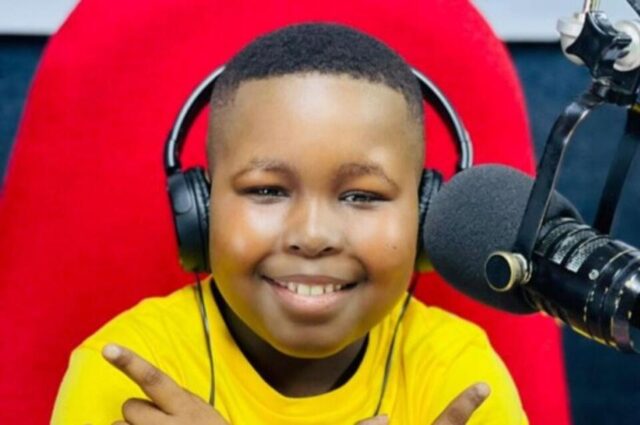A stem cell donor registration drive will be held at Wrenchville Hall in Kuruman on Saturday, August 19, in a desperate attempt to help save the life of 11-year-old Oreokame Sehularo, who is diagnosed with Fanconi anaemia.
A STEM cell donor registration drive will be held at Wrenchville Hall in Kuruman on Saturday, August 19, in a desperate attempt to help save the life of 11-year-old Oreokame Sehularo, who is diagnosed with Fanconi anaemia.
Fanconi anaemia is a rare disease that mainly affects the bone marrow.
The donor registration drive will run from 10am until 3pm on Saturday.
Oreokame needs a life-saving stem cell transplant from a registered stem cell donor.
The drive is run by DKMS Africa in a desperate attempt to find Oreokame a donor before it is too late.
DKMS Africa is a non-profit organisation that is dedicated to fighting against blood cancer. The organisation helps patients diagnosed with blood cancer find their genetic twin in order to be able to get a blood transplant in order to survive cancer.
Oreokame’s family, together with DKMS Africa, are sending out a special appeal for everyone to come out and register to save his life and many other patients like him.
Bonginkosi Kume, a donor recruiter from DKMS Africa, explained that a patient is allocated to them by either a hospital, a family member or friends, to assist in finding the patient a donor.
While their head office is based in Cape Town, Kume said they have branches in Gauteng and KwaZulu-Natal and also run blood transfusion drives in different provinces.
Kume said they have been disseminating information about their services and role in the Northern Cape, but have never had an actual drive and a patient in the Province before.
“This is our first time in the Northern Cape, but we have been working closely with the family and the patients for weeks.
“We recruit people as blood stem cell donors by creating awareness and educating the public about becoming a donor and how the process works,” said Kume.
“We usually start recruiting in the patient’s hometown first because that is usually where his genetics might be found.
“After a donor drive, we don’t stop there. We still continue with our work of recruiting people from different communities and companies and attending community events. This is also to find a match for our other patients.”
Kume said they have already started the recruitment drive at colleges and universities to recruit students.
Oreokame, who has been described as “tenacious and lovable”, has visited hospitals for most of his life. His first birthday party at home was only at the age of seven.
His mother, Kealeboga, said he is on the verge of being diagnosed with leukaemia due to the strength of the donated blood fading slowly but surely.
Kealeboga explained that Oreokame was first diagnosed with atresia of the oesophagus, a birth defect in which the throat does not develop properly or attach to the stomach.
She said Oreokame was born with a triggered stump, where the food could not move through to the stomach.
She highlighted that he has been in hospital most of his life receiving different types of treatment due to being constantly diagnosed with a new condition.
She pointed out that they have always been accepting because they were initially prepared that all the new diagnoses were linked to his condition from birth.
“The doctors managed to diagnose him in time and transferred him to Cape Town two days after his birth for his first operation. But as he grew older the operation was somehow wearing off, resulting in him having to undergo treatment.
“He was unable to swallow food. He was undergoing treatment because the intervention process could only last him until he reached the age of five years,” said the concerned mother.
“Then he was diagnosed with the condition of a ‘lazy colon’. This was also treated. The first time that he could pass stools while sitting was at the age of four.
“In 2016 he fell sick again and was admitted to hospital. He was again diagnosed with a failing bone marrow after a biopsy was performed. His bone marrow cells could not generate blood for his body.”
Kealeboga expressed concern about how her son’s blood transfusion sessions have now increased due to the failing/compromised bone marrow cells.
“Now he depends on blood transfusions more than before as he is at high risk of being diagnosed with leukaemia.
Oreokame, who is turning 12 in September and is currently in Grade 5, has spent very little time at school.
“We as a family have tried our best but there is nothing more we can do. Thus far our match could unfortunately only reach 50% and he needs a match that is above 50%,” said his mother.
“If he can find a match, they will only need the cells that work in the bone marrow. They will plant it in him in order for his body to multiply or produce his own blood. That way he won’t need to rely on blood transfusions.
“His deteriorating condition has increased the demand for blood transfusions. The blood transfusion started once a year, then twice a year, then increased to three times a year. We are concerned that it will end up being monthly or weekly.”
People are urged to register on the DKMS website in order to be tested on Saturday.
Monetary donations are also welcome and it could also help save lives.
Monetary contributions help add more lifesavers to the registry and donations can be sent to the baking details on the poster below.








